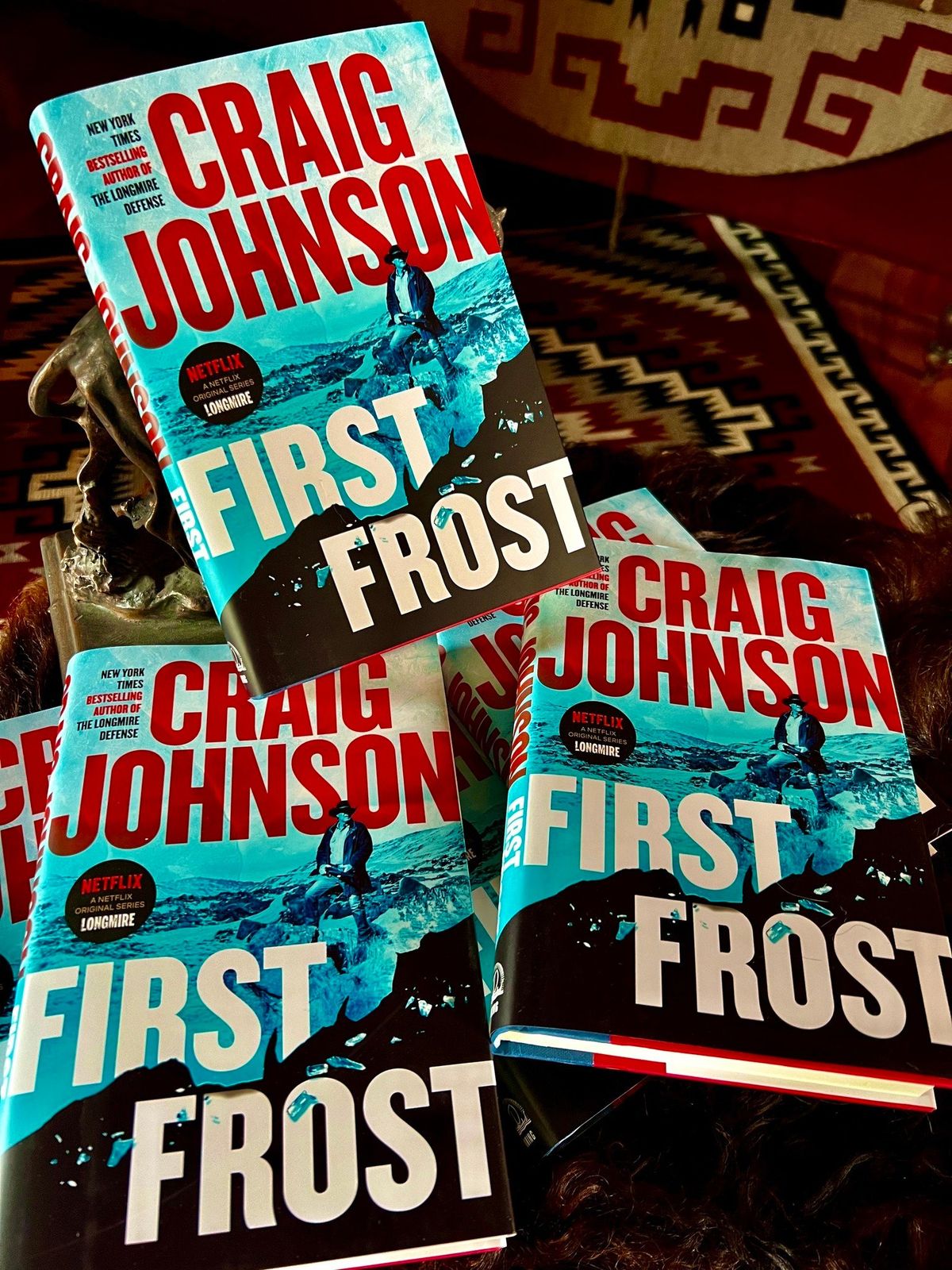A Martinez: ‘First Frost’ shows how widepresad respect of Longmire allows sheriff to navigate perilous scenes

By A Martinez
Actor A Martinez is joining author Craig Johnson on stage Tuesday as part of the Northwest Passages Book Club. Martinez wrote the following review of “First Frost” on his Facebook page.
“First Frost” is the 20th book in the literary chain of wonder that is Craig Johnson’s series of Walt Longmire Mysteries. I made it to page 21 before the early lump in my throat bloomed to tears. I was on a plane at the time and really didn’t want to be breaking decorum, but some feelings cannot be successfully resisted. As is often the case, it was a simple statement from our hero that did me in.
The novel is joined a month after the sheriff and his deputy Vic Moretti have begun living together. Cleaning out his basement, she is surprised to discover the “Monolith” – a massive ancient surfboard from Walt’s past. “You’re too big to surf,” Vic opines, even as she presses Walt to tell her the story. Grudgingly but unforgettably, he obliges.
The year was 1964. Walt and Henry Standing Bear, just graduated from USC and UC Berkeley, respectively, have enlisted to serve in Vietnam. They’ve been ordered to report for induction in roughly a week. (It’s a straight-up joy to spend time with these amazing young dudes on the cusp of what will become their formidable adulthoods …)
On their last storm-drenched day in California – just before Mother Nature turns vicious – Henry and Walt’s then-girlfriend Rachael steal one last ride on the Big Wednesday waves in Malibu. Within moments, a doomed boat begins to break up off the beach, throwing its occupants overboard in the now roiling sea. People are drowning, and big waves be damned, our guys are not about to stand around and watch. As we read, Mr. Johnson puts us in the killing water and makes our lungs scream, life or death suspended in terrible chaos, and this is where my throat began to get tight. At the risk of redundancy again – boy howdy.
The young men’s journey to do their duty will lead them into a grand misadventure centered on the history of shameful secrets that festered in the forced internment of Americans of Japanese descent in the wake of Pearl Harbor. The characters we meet in this deadly sojourn stick in the mind like projectiles. Lethal danger comes from many directions – tempered repeatedly by the poignancy of desperate human beings struggling to meet racism and tragedy on their own fragile terms.
Meanwhile – in the present – Walt is hauled into court by the angry families of the wealthy criminals he exposed in “The Longmire Defense,” the previous spellbinder in the series. “First Frost” toggles incisively between this current dilemma and Walt’s memories of that amazing week in 1964, where the hard-earned power of his real deal Division I football star swagger so robustly carried the stuff of his singular moral compass, already in place.
For me, the core miracle of Longmire shines from this moral compass – it’s a thing of such remarkably steadfast courage – and from the reverence Johnson holds for the virtues of true friendship. We are reminded of the indispensable mutual nourishment of the connection between Walt and Henry, of the unalterable fact that despite their occasional and sometimes violent disagreements, each of these men would die for the other.
And in that vein, there is a glorious passage with Vic on the witness stand, as she testifies with stunning disdain toward the compromised prosecutors seeking to ruin Walt’s reputation – a chunk of perfection that makes us want to shout out loud. Her turn here is among the most off-the-chain great defenses mounted by a cop on behalf of cops – and by a betrothed lover on behalf of her ferociously beloved. It’s a measure of pure, hilarious, irresistible fire from an utter ally – the kind of moment we imagine in our best dreams.
In classic heroic tradition, the observation reconstitutes along the way: it is the rare nobility of Walt Longmire’s character that provides him his most dependable armor. His ethos generates genuine respect among people who have reason to suspect him of bad intent or reason to do him harm – especially if they are smart – a respect that allows him to navigate and survive situations of peril that would prove the ruin of a lesser man.
When I finished, I went back to page 21 – the one that first broke me down – and took a second look. At least one man has drowned at this point, the broken pieces of the doomed boat have largely disappeared from view, but the boat’s illicit cargo – millions of dollars’ worth of wholesale heroin in tidy packets – is now scattered all over the beach. Walt is standing in the middle of the mess, talking to a head investigating cop who is quietly wondering about the young man’s role in all of this.
“(The officer) gestured toward the water like an old salt. “You swam out there twice to save some guys you didn’t know?”
“The first time. Then I went back for my buddy.”
“But you didn’t know that boat or anybody on it?”
“Nope.”
“Then why did you do it?”
I stared at him. “Because it was the right thing to do …”
Every time I encounter Walt Longmire, I’m reminded of how deeply I love to hear such words.